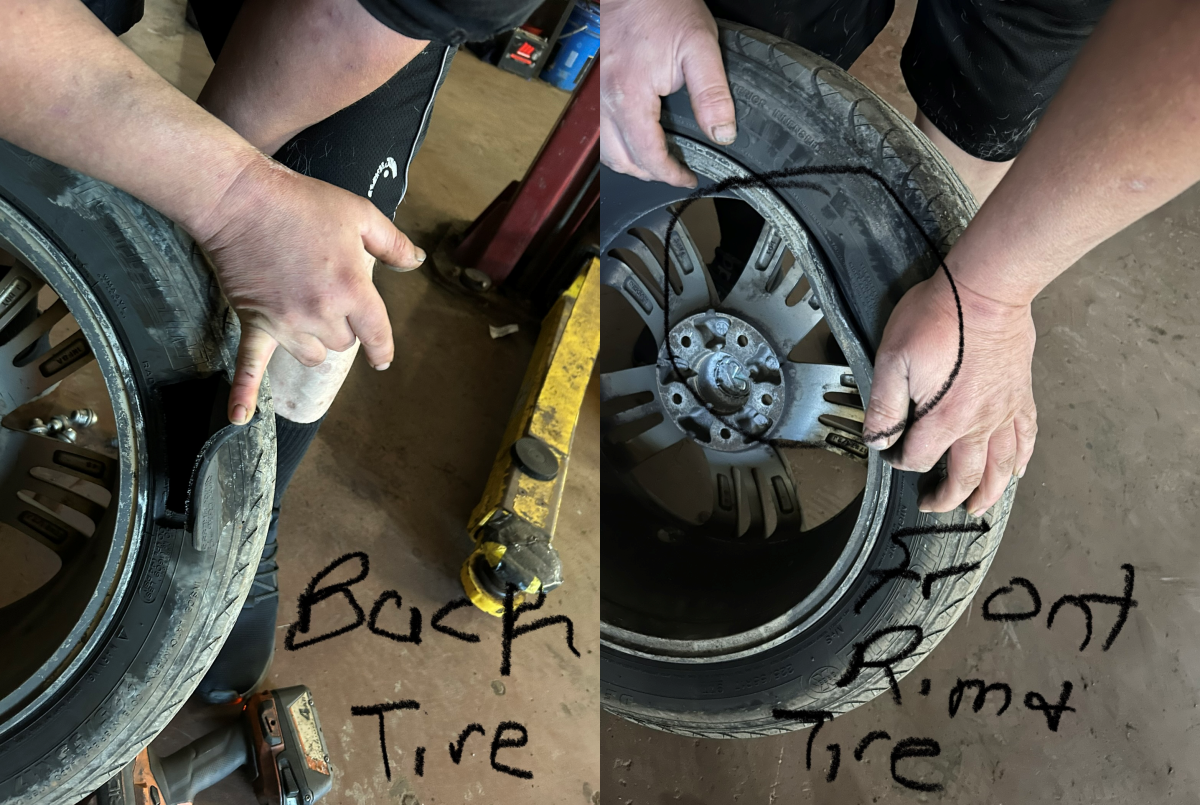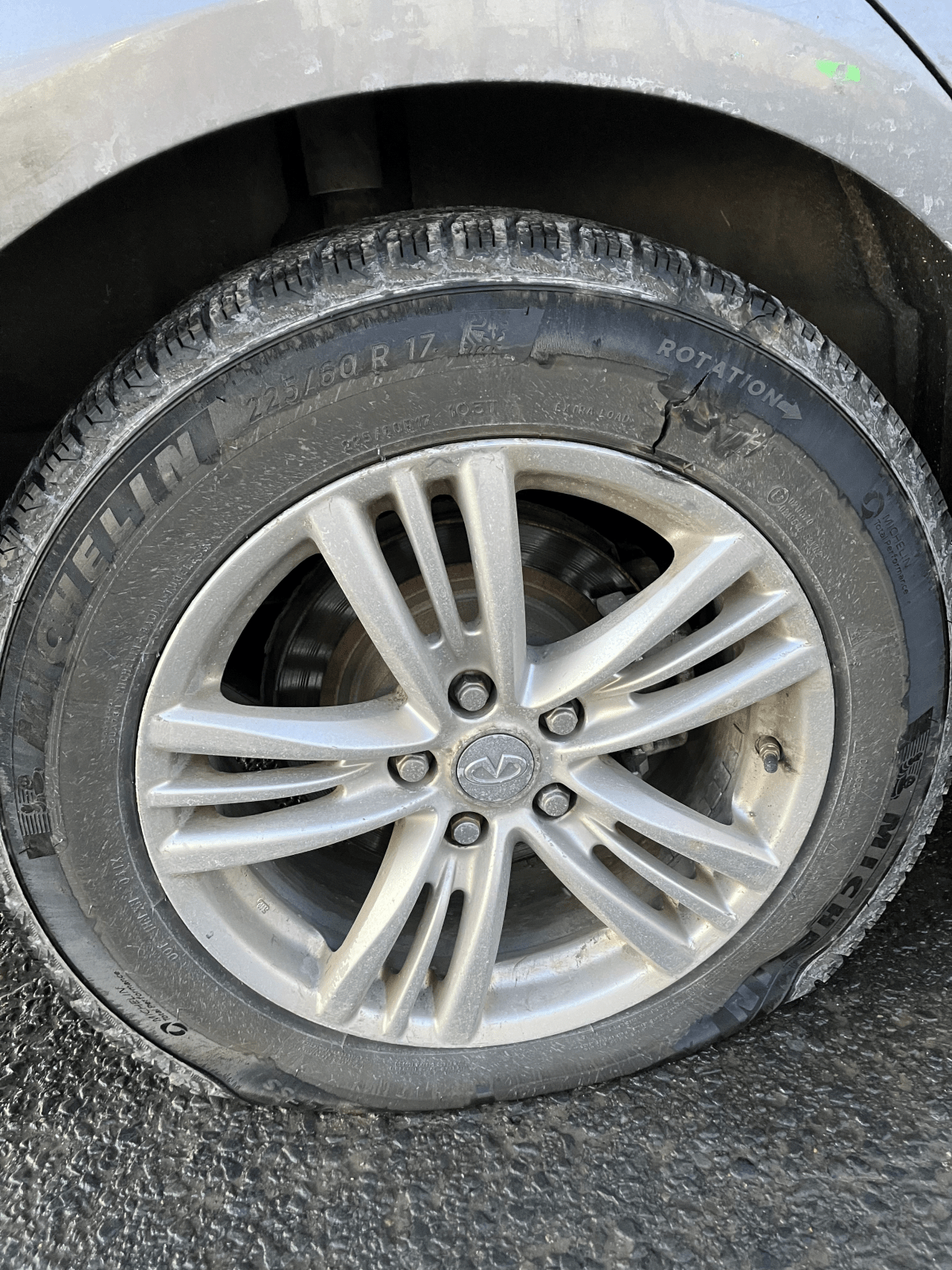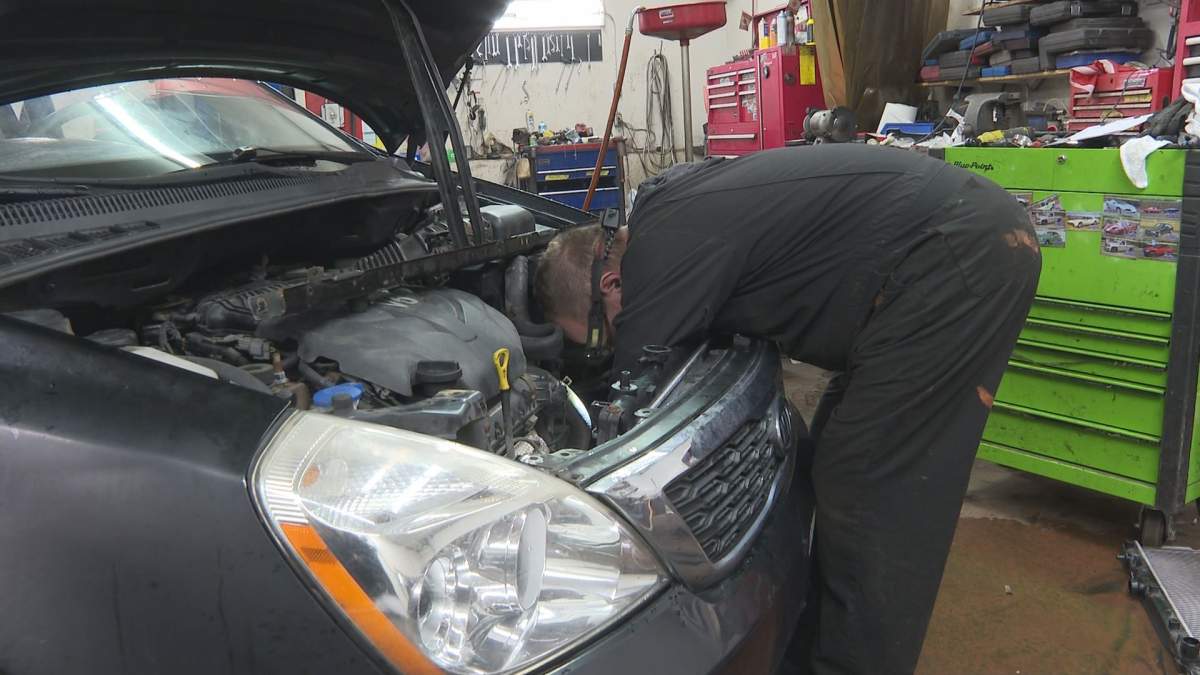Charlie Howell is used to fixing other people’s car troubles, but he’s spent the past several months dealing with some of his own thanks to Nova Scotia’s rough roads.

Howell, a mechanic at Mars Michael Automotive Repair Solutions, said his two right tires were “shredded” and his rim was damaged over the summer after driving over the potholed Avondale Road in Newport.
Then, in January 2024, his daughter-in-law was driving his car in the Enfield area when she hit a broken sewer grate that wasn’t marked off – destroying a wheel bearing, bending the control arm, and breaking off part of the subframe.
Both times, he tried to get compensation from the province to pay for the issues caused by the potholes, totalling about $3,000 in damage. Both times, the province denied his claims.
Potholes are a common problem in Howell’s line of work. Recently, he saw six cars that all hit the same pothole on Highway 102 and lost tires as a result.
The incidents have left a sour taste in Howell’s mouth and has him wondering where the high taxes Nova Scotians are paying are going.
“A lot of these taxes that they’ve been taking from us was to deal with road maintenance,” he said.
“First and foremost, you’d think they’d actually do the road maintenance.”
Howell is also frustrated that he was not compensated by the province for the damage done to his car by the road’s poor conditions.
“I work 16 hours a day. I have to feed my family, and I have to spend, now, another probably $3,000 to put my car back on the road,” he said.

Get daily National news
“It’s hard for me … I can just imagine other people that don’t make as much as I do (having) to suffer.”
Province found no negligence
Howell provided Global News a copy of a letter he received from a Service Nova Scotia claims officer on Feb. 21, denying his claim for the January incident.
In the letter, the claims officer said the Department of Public Works (DPW) was not aware of the issue until after Howell’s car was damaged.
“Unfortunately, to approve a claim for compensation, DPW must have notice of the issue, either from the public or DPW road patrols prior to your incident date and have exceeded the service standard to attend the location and affect necessary measures,” the letter said.
“As such, there is nothing to indicate that there was any negligence on the part of DPW.”
The letter concluded by saying the Crown “sympathizes with this personal expense and inconvenience.”
Howell responded, asking the claim to be reconsidered.
“This is now twice my car has had issues (because) of the roads in Nova Scotia. I should not have to keep absorbing the costs due to the roads here,” he wrote on Feb. 23.
The claims officer wrote back on Feb. 27, saying he reviewed the file and “found nothing to place negligence” on the Department of Public Works.
“Unfortunately, I would be unable to amend my decision in this matter,” he wrote. “You may want to present your claim to your insurer.”
But Howell said that wasn’t helpful for people whose cars are damaged by poor road conditions.
“That’s another ding on their insurance claim,” he said.
In a statement, Service Nova Scotia spokesperson Gary Andrea said “road safety is a priority for the government.”
“Every effort is made to keep our roads and highways in safe and good condition,” he said.
“That is why we are investing more than $500 million in roadwork and major projects this fiscal year.”
Andrea said Nova Scotia roads are prone to potholes this time of year due to sudden swings in temperature.
“During the winter months, staff monitor and regularly complete cold-mix repairs as quickly as possible to improve road conditions for motorists,” he said. “Repairs are prioritized based on safety.”
He said Nova Scotians can report potholes by calling its operations contact centre at 1-844-696-7737 or emailing dpw-occ@novascotia.ca.
Same potholes ‘again and again’
Michael Geifman, Howell’s boss, said his shop sees people with pothole-related vehicle damage pretty much every day.
“The problem is not the cars, or drivers. The problem is the roads,” he said.
In the 12 years he’s been in Nova Scotia, the problem has only gotten worse, said Geifman.
Geifman said the province fails to properly fix potholes when they first pop up, leading to bigger problems further down the road.
“They do a quick, cheap repair, and it probably holds one month, two months, and it’s done,” he said.
“The people fall in the same potholes, the same problems with the roads, again and again.”
He said properly repairing potholes would cost more money initially, but would save the province money later on when they don’t need to be repaired every few months.
Meanwhile, Howell hopes to bring awareness to the state of the province’s roads and the difficulties in successfully filing a claim.
“Out of all the provinces that I’ve lived in, I’ve noticed that Nova Scotia seems to be the farthest behind in maintaining their roads,” he said.










Comments